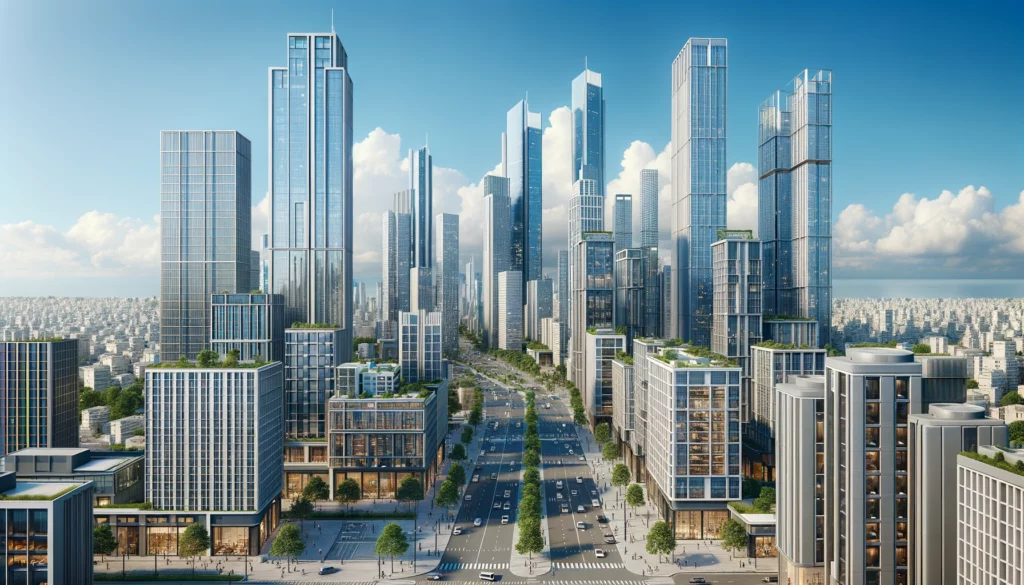Miami’s skyline is transforming, driven by luxury towers, branded residences, and investor demand from around the world. For many buyers, pre-construction condos in Miami offer the opportunity to lock in pricing, customize features, and invest in a fast-growing market.
But buying a condo before it’s built is very different from buying resale. It requires a solid understanding of timelines, contracts, and local market dynamics. Here’s what you need to know.
How to Choose the Right Pre-Construction Condo in Miami
Choosing a pre-construction condo isn’t just about price per square foot. You’re investing in location, timing, legal flexibility, and the developer’s ability to deliver. Here’s what to evaluate before committing.
1. Select the Right Neighborhood
Each area of Miami attracts a different type of buyer and offers varying potential for appreciation.
Brickell
High-rise luxury, financial district, strong rental demand. Popular with investors.
Edgewater
Bay views, newer developments, growing demand. Strong for long-term appreciation.
Downtown Miami
Major infrastructure underway. More affordable than Brickell with strong upside.
Coconut Grove
Low-density, boutique luxury. Great for end-users and downsizers.
Bay Harbor Islands / Surfside
Quieter areas near the water. Ideal for boutique condo buyers and families.
Wynwood / Midtown
Creative hubs, walkable, and increasingly popular for short-term rental buyers.
Understand the neighborhood’s buyer profile and rental rules before you buy.
2. Research the Developer’s Track Record
Since you’re buying before construction, the developer’s history matters. Look into:
- Completed projects in Miami or similar markets
- Delivery timelines and whether they’ve met them in the past
- Lawsuits, construction delays, or warranty complaints
- Financial stability of the developer
Consider working with developers known for delivering high-quality products like Related Group, Terra, PMG, and OKO Group.
3. Understand the Deposit Structure
Pre-construction condos in Miami typically require 30 to 50 percent deposits paid in stages. A typical breakdown:
- 10 percent at contract signing
- 10 percent at groundbreaking
- 10 percent at top-off
- Balance at closing
Ask if the developer offers:
- Flexible deposit timelines
- Incentives for international buyers
- Closing cost credits or furniture packages
4. Review Rental and Resale Flexibility
If you’re buying for rental income, confirm the building’s policies:
- Minimum lease terms (12 months, 6 months, or 30 days)
- Limits on the number of leases per year
- Whether short-term rentals (like Airbnb) are allowed
- Whether you can resell or assign your contract before completion
Investor-friendly buildings like Nexo, Domus, and Nomad Wynwood are specifically designed to allow greater rental flexibility. Many others are restricted.
5. Evaluate the Amenities Package
Amenities can affect both lifestyle quality and resale value. Newer buildings often include:
- Wellness centers with cold plunges or infrared saunas
- Co-working lounges or private offices
- Rooftop pools and entertainment decks
- Smart-home features
- Concierge services and valet parking
Confirm the quality and sustainability of these amenities, and compare monthly HOA fees across similar projects.
6. Analyze the Floor Plan
Don’t assume square footage equals usability. Ask for:
- 3D walkthroughs or virtual tours
- Sample furnished layouts
- Window placements and lighting plans
Look for:
- Split-bedroom layouts
- Natural light in all bedrooms
- Efficient kitchen and living room flow
Avoid long hallways, windowless bedrooms, and unusable outdoor space.
7. Budget for Total Carrying Costs
Beyond the purchase price, factor in:
- HOA fees ($0.80 to $1.50 per square foot, depending on services)
- Closing costs (developer fees, title, and taxes — often 4 to 6 percent)
- Property taxes and insurance (if not included in HOA)
- Any construction-phase carrying costs if financing
Ask the sales center or your agent for a breakdown before signing.
8. Align with Your Exit Strategy
Are you buying to live in it long-term, rent it out for income, or sell for profit post-completion? Not every project is suitable for all three.
- If you want to rent: check lease policies and local rental demand
- If you want to sell: ask whether reassignments are allowed
- If you want to live: focus on livability, amenities, and HOA strength
Make sure your building choice fits your ownership goals from the start.
Can You Sell a Pre-Construction Condo Before It’s Completed?
In some cases, yes—but not always.
In Florida, reselling your contract before the building is complete is sometimes referred to as a contract reassignment (not “assignment sale,” which is more common in Canadian markets). However, this is not standard practice in Miami and is often restricted or entirely prohibited by the developer.
Key points:
- Many developers do not allow reassignments or only permit them under specific conditions.
- Written approval and a transfer fee may be required.
- Contracts cannot usually be marketed on the MLS before closing.
- Legal documentation must be coordinated with the developer’s team.
If resale flexibility is important to you, discuss it with your agent or attorney before signing. Not all projects are suitable for short-term flipping or pre-close exits.
Pre-construction condos in Miami can offer long-term value, modern finishes, and staged payments—but they’re not a passive investment. Success comes from choosing the right building, understanding your rights, and working with professionals who can guide you through the process.
Get Expert Guidance on Miami’s Pre-Construction Market
We specialize in developer-direct access to Miami’s most promising new developments. Our team helps buyers compare options, evaluate risk, and gain early access to exclusive inventory.
What we offer:
- Project-by-project breakdowns
- Early floor plan access
- VIP pricing and incentives
- Rental and resale strategy support
Book a consultation or download our full pre-construction inventory list.
[Book a Call]
[Download Project List]

